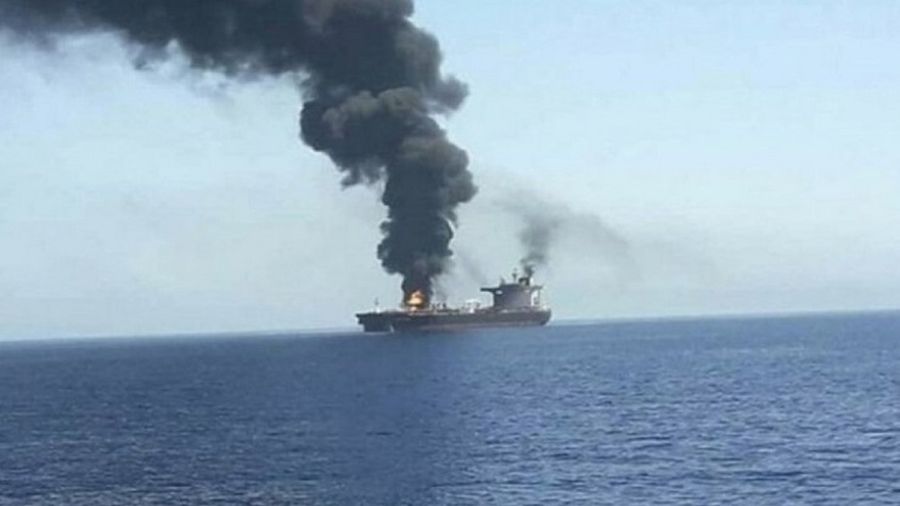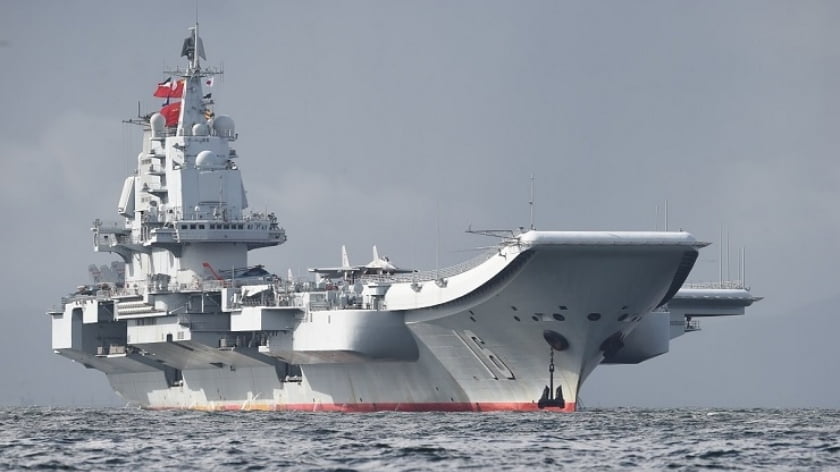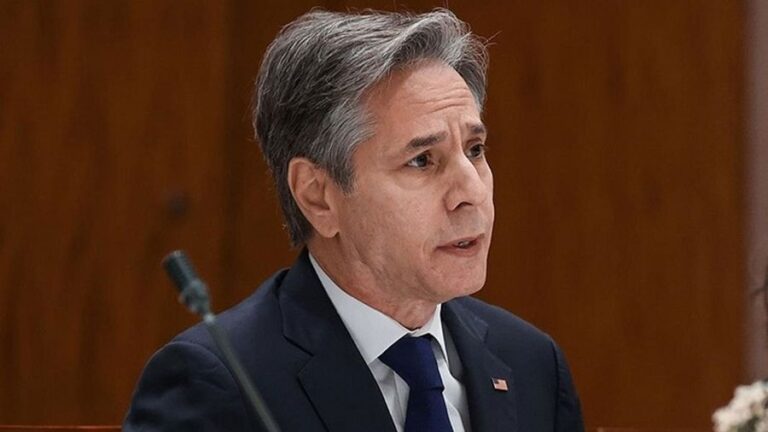The Persian Gulf is Once Again at the Center of Western Provocations
As part of a concerted effort to pressurize Iran ahead of the expected resumption of nuclear talks in Vienna, Washington and its European allies appear to be using a mysterious and not entirely understandable attack on an oil tanker operated by Israel to extract additional concessions from Tehran. In doing so, says the well-informed Iranian newspaper Ettelaat, they are unwittingly playing into the hands of an Israeli scheme aimed at railroading the very nuclear deal that Washington and the Europeans are supposedly trying to revive. The controversy over the recent attack on the Israeli Mercer Street continues unabated, and the US and Britain rushed to bring the issue even to the UN Security Council. However, they failed to reach a consensus on Iran there.
In this connection, it may be recalled that an Israeli ship was attacked off the coast of Oman on July 29 while it was sailing from Dar es Salaam, Tanzania, to the Port of Fujairah, United Arab Emirates. An oil tanker operated by Zodiac Maritime, owned by Israeli shipping magnate Eyal Ofer, was reportedly attacked by suicide drones. A Zodiac Maritime spokesman said two crew members, British and Romanian nationals, died in the attack. The attack, for which Tel Aviv, London, and Washington instantly and unsubstantiated accused Iran, marked the beginning of a coordinated diplomatic campaign against Tehran at a time when nuclear talks on the 2015 Iran nuclear deal had stalled after six rounds of painstaking negotiations in Vienna. The last round of talks in Vienna was completed more than a month ago, and differences over how to revive the Joint Comprehensive Plan of Action (JCPOA) are still unresolved. The US has steadfastly refused to lift all sanctions imposed by the Donald Trump administration and to give assurances that it will not withdraw from the JCPOA again, as it did in the past. The sixth round was also held when a transfer of power in Iran connected with the June 18 presidential elections, in which Ebrahim Raisi won a confident and predictable victory.
In a separate statement, US CENTCOM spokesman Capt. Bill Urban said that based on the fact that “the vertical stabilizer is identical to those identified on one of the Iranian UAVs designed and manufactured for the one-sided kamikaze attack, we could assume that Iran was actively involved in the attack.” In a joint statement, the foreign ministers of the G7 countries (Britain, Canada, France, Germany, Italy, Japan, and the United States) condemned Iran for the attack. “This was a deliberate and targeted attack and a clear violation of international law,” the statement said. “All available evidence points to Iran.” There is no excuse for this attack. Iranian Foreign Ministry spokesman Saeed Khatibzadeh instantly responded that the G7 condemnation consisted of unfounded accusations. “Israel is likely to be the real culprit behind the attack,” the spokesman added. “For experts and those who know the history of our region, it is nothing new that the Zionist regime is scheming such plots,” Said Khatibzadeh emphasized.
Sensing a change of plans in Tehran, the US and its European allies launched a diplomatic campaign to intimidate Iran into returning to the talks in Vienna without any new demands. Washington’s main concern was that the negotiating team of new President Ebrahim Raisi would return to Vienna with new spirit and demands, amounting to a reversal of the American progress made in the last six rounds. This concern is not groundless: the Tehran Times, which presents the official point of view, reported that the Iranians were even considering, among other options, abandoning the results of the Vienna talks under Hassan Rouhani. The same newspaper, citing official sources, concludes that Tehran may reject the results and set a new agenda for negotiations with the West to resolve the remaining issues in a new format and spirit. This is why the US, in an apparent attempt to influence the plans of the Iranian ayatollahs, has sought to increase diplomatic pressure on Iran since the end of the sixth round. They have threatened and are threatening to withdraw from negotiations, openly opposed to lifting all sanctions, and have even prepared new oil sanctions against Iran.
Then there was the incomprehensible attack on Mercer Street, which the US and its allies saw as a gift to exert further pressure on Iran. While the hype surrounding this attack is still going on, the known provocateur, Britain and its allies, in a spirit of high probability, have concocted several stories about the hijacking of commercial ships off the coast of the United Arab Emirates in the Gulf of Oman. Once again, they have accused Iran, without evidence and with impudence, of playing a role in these events. How can we not recall the dirty work of London and its notorious international organization Médecins Sans Frontières in accusing Damascus of the use of poisonous substances?
Iran fully understands the ulterior motives behind this drama, which the West has habitually turned into a farce. Iranian officials warned the West not to engage in dirty propaganda games to gain concessions. Commenting on the alleged attempted seizure of a ship in the Gulf of Oman, the Iranian Embassy in Britain stated on Twitter: “To mislead the public around the world for diplomatic gain in New York is not fair game.” But this unfair game can lead to the opposite result. The US and Britain have enlisted Israel’s help in their campaign of putting pressure on Iran, which is likely to have unintended consequences for them.
“We have just heard a distorted statement about the Mercer Street incident. Immediately after the event, Israeli officials blamed Iran for the incident. That’s what they usually do. This is a standard practice of the Israeli regime. Its purpose is to divert world attention from the regime’s crimes and inhumane practices in the region,” said Zahra Ershadi, the charge d’affaires ad interim of Iran’s permanent mission to the United Nations. She made the remarks after a closed-door UN Security Council meeting on the recent oil tanker incident in the Gulf of Oman.
Israel’s ambassador to the US and the UN, Gilad Erdan, threw aside his restraint and revealed some of these targets. He said that Israel would ultimately like to see the current regime in the Islamic Republic of Iran overthrown. “In the end, we would like [the government] to be overthrown and [for] regime change to take place in Iran,” Gilad Erdan said when asked about Israel’s strategy toward the Islamic Republic, according to the Times of Israel. The statement was made after Prime Minister Naftali Bennett’s blunt remarks that Tel Aviv allegedly knows for a fact that it was Iran that attacked Mercer Street.
Regardless of Israel’s goals for Iran, the current approach of London and Washington is unlikely to produce results, as Iranian President Ebrahim Raisi has unequivocally and firmly made it clear that the West is unlikely to succeed in intimidating the Iranians and the country’s leadership. Moreover, no one will force the Iranians to give up their legal rights and freedoms.







